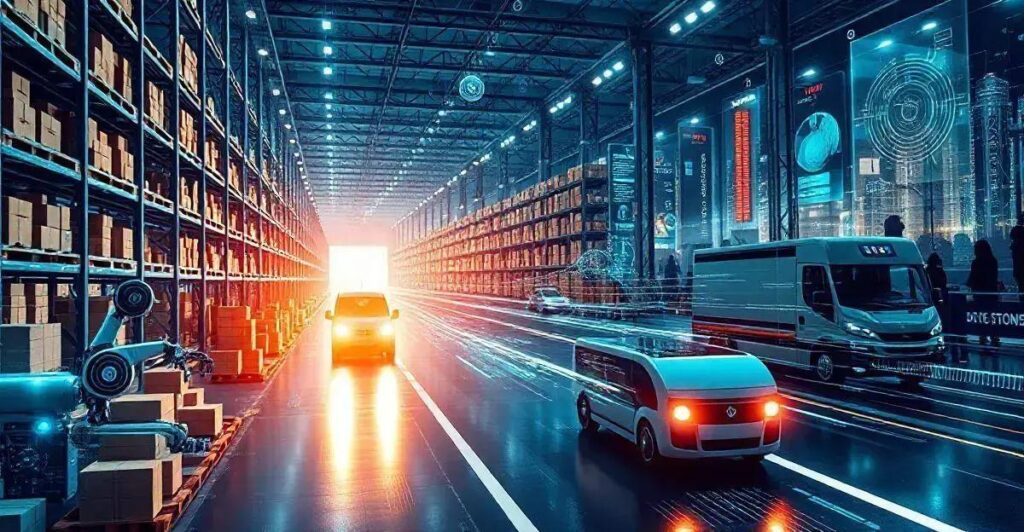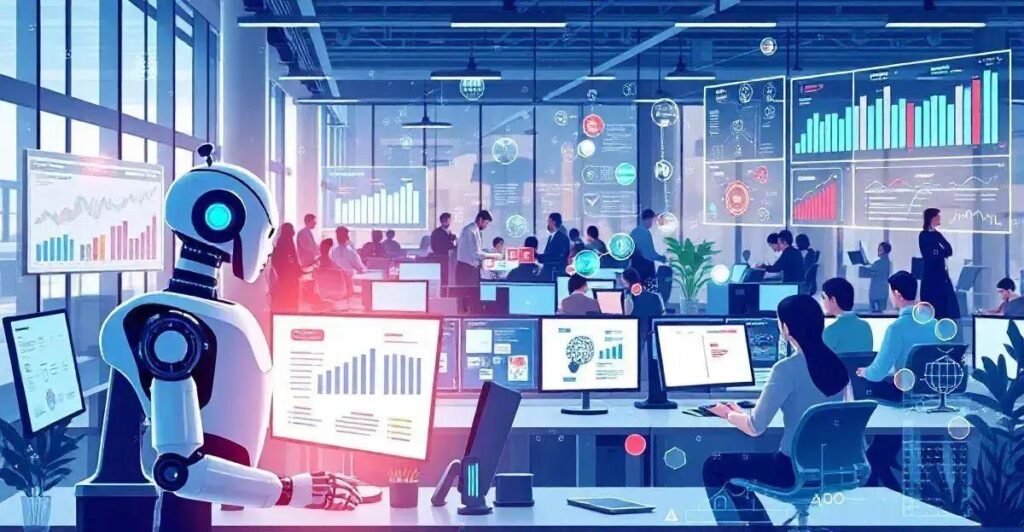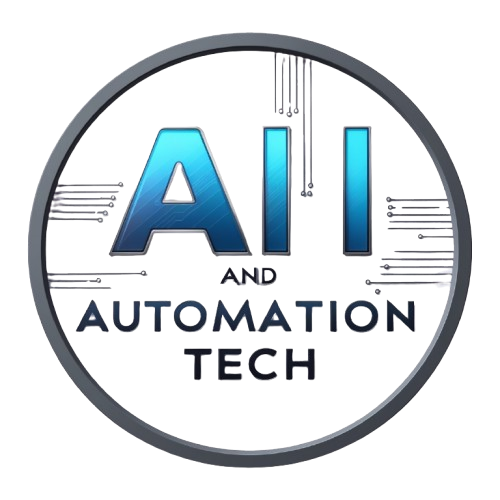The logistics sector is on the cusp of a significant transformation, driven by the rapid advancement of artificial intelligence (AI) and automation technologies.
As the industry continues to evolve, the need for increased efficiency, reduced costs, and improved customer satisfaction has never been more pressing.
In this article, we’ll delve into the future of AI and automation in logistics, exploring the benefits, challenges, and real-world applications that are set to revolutionize supply chain management.
Revolutionizing Supply Chain Management
The logistics sector is poised for a significant transformation with the integration of Artificial Intelligence (AI) and automation. AI-powered systems can analyze vast amounts of data, identify patterns, and make predictions, enabling logistics companies to optimize their operations, reduce costs, and improve customer satisfaction.
By streamlining processes, AI can help logistics companies to reduce human error, increase efficiency, and make data-driven decisions. With AI, logistics companies can anticipate and respond to changes in demand, manage inventory more effectively, and improve the overall supply chain visibility.
Benefits of AI and Automation in Logistics

The adoption of Artificial Intelligence (AI) and automation in logistics can bring numerous benefits, from automating repetitive tasks to improving customer service and reducing labor costs. AI-powered systems can analyze vast amounts of data, identify patterns, and make predictions, enabling logistics companies to optimize their operations, reduce costs, and improve customer satisfaction.
Additionally, AI can help logistics companies to improve their inventory management, reduce stockouts and overstocking, and improve the overall supply chain visibility.
While AI and automation hold much promise for the logistics sector, there are also challenges and limitations to consider.
One of the main challenges is the need for significant investment in new infrastructure and technology. Another challenge is the need for trained personnel to operate and maintain the AI-powered systems. Additionally, there may be concerns about job displacement and the need for retraining and upskilling.
Furthermore, there are also potential security risks associated with the use of AI and automation in logistics, such as data breaches and cyber attacks.
There are many real-world applications and use cases of AI and automation in logistics. For example, AI-powered chatbots can be used to provide customer service and support. AI-powered predictive analytics can be used to predict demand and optimize inventory levels.
AI-powered autonomous vehicles can be used to transport goods and reduce the risk of accidents. AI-powered warehouse management systems can be used to optimize warehouse operations and reduce labor costs.
Additionally, AI-powered supply chain visibility platforms can be used to provide real-time tracking and monitoring of shipments.
In conclusion, the integration of AI and automation in logistics presents both opportunities and challenges. The future outlook suggests that as technology continues to evolve, logistics companies that embrace these innovations will likely gain a competitive edge in the market.
Revolutionizing supply chain management through AI and automation is not just a possibility; it is becoming a reality.
Challenges and Limitations
The adoption of Artificial Intelligence (AI) and automation in logistics is not without its challenges. One of the primary concerns is the need for significant investment in new infrastructure and technology.
Additionally, there may be concerns about job displacement and the need for retraining and upskilling.
Furthermore, there are also potential security risks associated with the use of AI and automation in logistics, such as data breaches and cyber attacks.
Moreover, the lack of standardization in AI and automation technologies can create compatibility issues and hinder widespread adoption.
Finally, there may be regulatory challenges and limitations in implementing AI and automation in certain industries or regions.
Real-World Applications and Use Cases

One of the most exciting aspects of AI and automation in logistics is its real-world applications and use cases.
For instance, AI-powered chatbots can be used to provide customer service and support, while AI-powered predictive analytics can be used to predict demand and optimize inventory levels.
AI-powered autonomous vehicles can be used to transport goods and reduce the risk of accidents, and AI-powered warehouse management systems can be used to optimize warehouse operations and reduce labor costs.
Additionally, AI-powered supply chain visibility platforms can be used to provide real-time tracking and monitoring of shipments, and AI-powered predictive maintenance systems can be used to predict and prevent equipment failures.
Conclusion and Future Outlook
In conclusion, the integration of advanced technologies is essential for staying competitive in today’s fast-paced market. Businesses must adapt to the evolving landscape by embracing innovation and leveraging data-driven insights.
As we look to the future, it is clear that collaboration between humans and AI will play a pivotal role in shaping industries.
Future Outlook
Organizations that prioritize continuous learning and agility will be better positioned to navigate challenges and seize opportunities.
Ultimately, the journey towards a more technologically advanced future requires a commitment to sustainability and ethical practices to ensure that progress benefits all stakeholders.
FAQ – Frequently Asked Questions about Artificial Intelligence in Small Businesses
How can task automation benefit my small business?
Task automation frees up your team from repetitive tasks, increasing productivity and allowing them to focus on more strategic tasks.
What tools can I use for data analysis?
There are various tools available, such as Google Analytics, Tableau, and Microsoft Power BI, that help collect and interpret valuable data.
What are chatbots and how do they improve customer service?
Chatbots are virtual assistants that can answer questions and resolve issues at any time, improving customer experience and freeing up your team.
How can I personalize the customer experience?
Through data analysis, you can better understand customer preferences and offer personalized recommendations and promotions.
Why is customer feedback important?
Feedback is essential for identifying areas that need improvement and adjusting your service strategy to ensure customer satisfaction.
Is artificial intelligence accessible to small businesses?
Yes, there are various AI solutions that are accessible and scalable for small businesses to improve efficiency and customer service.




